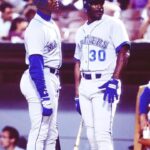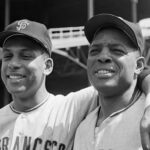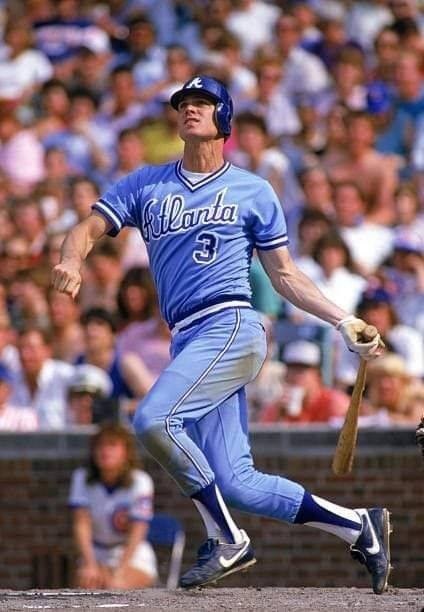Sticky Memories of Protests Pasts
In the fifth inning of Tuesday night’s Red Sox/Yankees game, his team down 5-1, Josh Beckett’s plant foot slipped a bit on the wet mound of Yankee Stadium. That pitch resulted in a pop up for Alex Rodriguez, and Beckett faced the next batter. Once that batter, Robinson Canoe, had hit a two-run double, Beckett was pulled for an injury. The Yankees bench, stating that he was not hurt but that the injury was being faked so that a reliever would be given ample time to warm-up, played the remainder of the game under protest.

Joe Girardi protested Josh Beckett's 5th inning exit from Tuesday night's game stating he did not really have an injury.
Given the fact that Josh Beckett was placed on the 15 day disabled list, it seems unlikely that the umpires decision to allow time for Manny Delcarmen to warm-up would be questioned seriously by the league, even considering that the Yankees went on to lose the game, 7-6.
So what exactly is the deal with protests in baseball?
The rule book for Major League Baseball has this to say about protests:
4.19
PROTESTING GAMES.
Each league shall adopt rules governing procedure for protesting a game, when a manager claims that an umpire’s decision is in violation of these rules. No protest shall ever be permitted on judgment decisions by the umpire. In all protested games, the decision of the League President shall be final.
Even if it is held that the protested decision violated the rules, no replay of the game will be ordered unless in the opinion of the League President the violation adversely affected the protesting team’s chances of winning the game.The really interesting line in this passage is the part that reads, “No protest shall ever be permitted on judgment decisions by the umpire.”
Many would argue that everything that happens on the field is subject to the umpire’s judgment. There are examples to show however, for instance, if a third strike gets away from the catcher and the runner makes it to first he is, according to the rules, safe. If an umpire were to call him out without a throw beating him to first, it would be an obvious deviation from the rules of the game. This would be different that the throw being made and a close play at first was viewed by the umpire as runner out. One is a judgment call, the other is not.
In terms of last night’s episode, the umpire decided that Beckett was actually injured (judgement call) and as such, the rules state that a replacement must be given time to warm-up. The rules were followed. If Beckett and the Red Sox were lying they got away with it. But since the rules were followed and the issue was dealing with the judgment of the umpire, the protest seems illegal.
One suggestion made was that the Yankees protested as a preemptive measure. Tuesday night the game was delayed an hour due to rain. It was speculated upon that the Yankees may have anticipated an protest by Boston about the playing of the game on a wet field (perhaps the cause of Beckett’s slip), a game that Boston was, at that point, losing 5-1. The flaw in this logic is that the home team doesn’t decided when a game can be played or not played on account of weather:
4.01 (d)
As soon as the home team’s batting order is handed to the umpire-in-chief the umpires are in charge of the playing field and from that moment they shall have sole authority to determine when a game shall be called, suspended or resumed on account of weather or the condition of the playing field.
Gamesmanship is most likely the best explanation. The rivalry between Boston and New York is one of professional sport’s most famous and contentious (albeit one-sided this season). When these two teams get together the standard procedure is to do whatever can be done within the boundaries of sportsmanship and the rulebook. In the spirit of intense competition, for the loyal fans, and for the sake of saying “We did everything we could,” protests like the one on Tuesday see a bit less odd.
It’s hard to watch a game where there is a protest without at least thinking of what is probably the most famous example of a protested game in MLB history: The Pine Tar Incident. The Yankees were involved in that one, too.

Geroge Brett being restrained after the "Pine Tar Incident"
On Sunday, July 24, 1983 the Yankees were playing host to the Kansas City Royals. The Royals of the early 80’s bear little resemblance to the Royals of today – they had finished second in their division the year before and would again that year. The early 80;s Yankees were also different. They had not made the post season since 1980 and had been kept of out the World Series that year by Kansas City. With K.C. down a run in the top of the ninth, George Brett hit a two run home run to put the Royals up 5-4.
Yankee manager Billy Martin spoke to the home plate umpire, arguing that Brett had too much pine tar on his bat. MLB rules stated that the substance, use to enhance a batter’s grip, could not go farther up the bat than 18 inches. As Martin and the other umpires gathered around. the bat was laid against home plate (itself 17 inches) and it was determined that there was, indeed, too much pine tar. When Brett was called out (removing the two runs and ending the game in a loss for the Royals) he went into a tirade that makes every all time baseball highlight reel. He was physically restrained by several persons, but all his screaming and yelling did not change the call… at least then.
The Royals protested the game and the incident was reviewed by American League President Lee MacPhail. MacPhail decided that, though the bat was clearly in violation of the rule, the only penalty mentioned in the rules was the removal of the bat from the game. There was no mention of a penalty for the batter, so he restored Brett’s home run and ordered that the game be finished from that point. The Yankees tried to appeal, but in the end the teams met later in the summer when both had a scheduled off day.
The game picked up where it left off, with the Royals ahead by one run. In an empty Yankee Stadium, Billy Martin tried to protest again, stating Brett had not touched all the bases, but the umpiring crew (not the same one as before) had a signed affidavit from the original bunch that Brett had done so. The next Royals batter struck out to end their half of the ninth and the Yankee batters went down in order in the bottom of the frame, ending the game with a Royal’s victory.
There isn’t much chance of any such judgments in the case of Josh Beckett’s real-or-imagined injury from Tuesday night. On the other hand, you never can tell.
Don Spieles covers Major League Baseball for Sports Then and Now.









